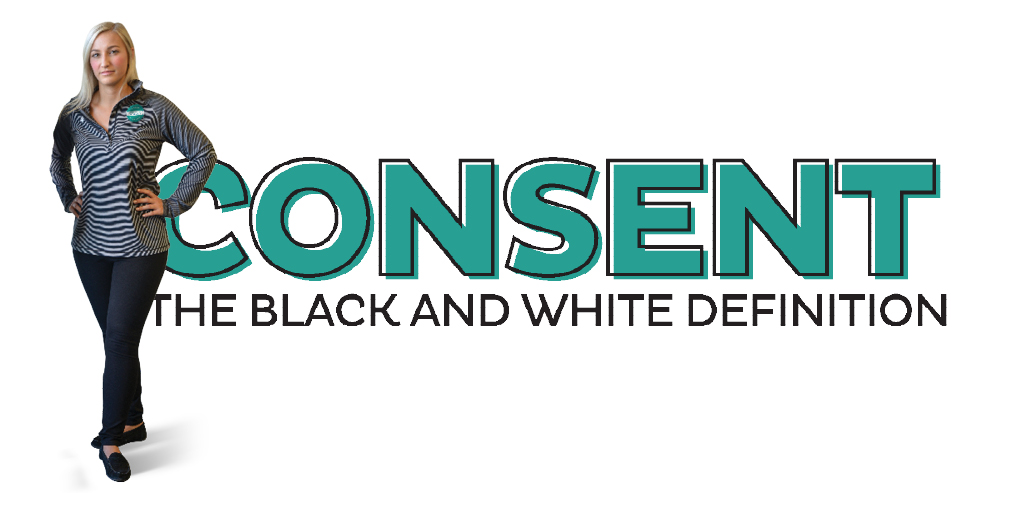Consent: The black and white definition

Sex can be an amazing activity that brings two (or more) people together mentally, physically and emotionally wherein sensations are at an utmost high.
On the other end of the spectrum, sex can really be just a meaningless, but fun romp and nothing more.
Regardless of tendencies and preferences, there is no right or wrong way to do it, granted there is always one key component present at all times, consent in the form of communication.
“The technical definition [of consent] is willingly giving permission through words or actions for sexual activity to happen. What that basically means is that everyone involved in the situation has to make it known that they want whatever's happening to happen” Allison Preyde, public education co-ordinator for Anova, formerly known as the Women's Community House with the Sexual Assault Centre London (SACL), said.
Without this key component, an activity that is supposed to be fun, amazing and wonderful for everyone involved can instead be confusing, traumatic and shameful along with many other things.
Communication is not just limited to verbal cues, but also emotional and physical signals as well.
“Consent is a lot clearer than people think. We can express our consent in a lot of different ways so it's enthusiastic, sober, it's voluntary so it's non-coerced. Consent is also ongoing so just because I say yes to one thing doesn't mean I am down to do everything and consent has to be given every time” Fanshawe's sexual violence prevention advisor, Leah Marshall, said.
For students who find themselves uncertain about the circumstances, both Preyde and Marshall stressed the importance of asking the other partner for affirmation and approval to proceed.
“If you wanted to braid your friend's hair, you wouldn't just go up to them and start braiding their hair. You'd probably ask if that's okay because you're touching their body. That we see as so normal, but the idea of wanting to kiss someone, we think ‘Oh but you can't ask because that would be weird'. A lot of people think it's really sweet when you ask” Preyde said.
Marshall shared similar thoughts. “It doesn't matter if it's your partner or someone you've consented to having sexual activities with before, you have to check in every time to make sure that's something that person wants to do. The big piece about consent is if you're unsure, you just need to make sure that you check in and ask someone,” Marshall said.
Consent itself is not a grey issue nor is there any leeway or exceptions to the definition.
Students who find themselves in new environments like at parties where substances such as drugs and alcohol can impair judgement skills should be aware that the notion of consent does not adapt or customize to different scenarios.
“Sometimes people think ‘Oh what if we're both drunk?' and those questions come up quite frequently. So, it's really important, it doesn't matter who's intoxicated or if you're both intoxicated, no one can give consent if they are intoxicated” Marshall said.
For those who have questions pertaining to consent or have found themselves or someone they know to have experienced scenarios wherein sexual consent was not given and along with everything else in between, a variety of options and resources are available at your convenience.
At Fanshawe College, Leah Marshall provides services to any students on campus that have experienced sexual violence during their time at Fanshawe or prior to. This service is offered for any and all forms and severities of sexual violence and assault and is done so within a confidential environment.
Monday to Friday 8:30am-4:00pm 519-452-4465
After Hours: 1-844-666-SVPA (lists/connects to resources available through button selection or connects to Leah Marshall's direct line to leave a message for next day appointments) For more information, please visit fanshawe.ca and search sexual violence support and education.
lkmarshall@fanshawec.ca
Anova, formerly the Women's Community House which offers a 24/7 Crisis & Support Line where complete confidentiality is kept and callers can remain anonymous apart from providing a first name (for counselling/conversation purposes which also can be made up) For more information, please contact Anovafuture.org. 24/7: 519-642-3000
The Regional sexual assault and domestic violence treatment centre program at St. Joseph's Health Care London provides counselling services to any and all gender identifications who have experienced a sexual assault within the past year. This option is available 24/7, not defined by any set number of sessions and covered through OHIP.
Monday to Friday: 8:00am-4:00pm 519-646-6100 x64224
After hours: 519-646-6100, press “0” and ask the switchboard to page the nurse on-call for sexual assault and domestic violence. For more information, please visit sjhc.london.on.ca/sexualassault














